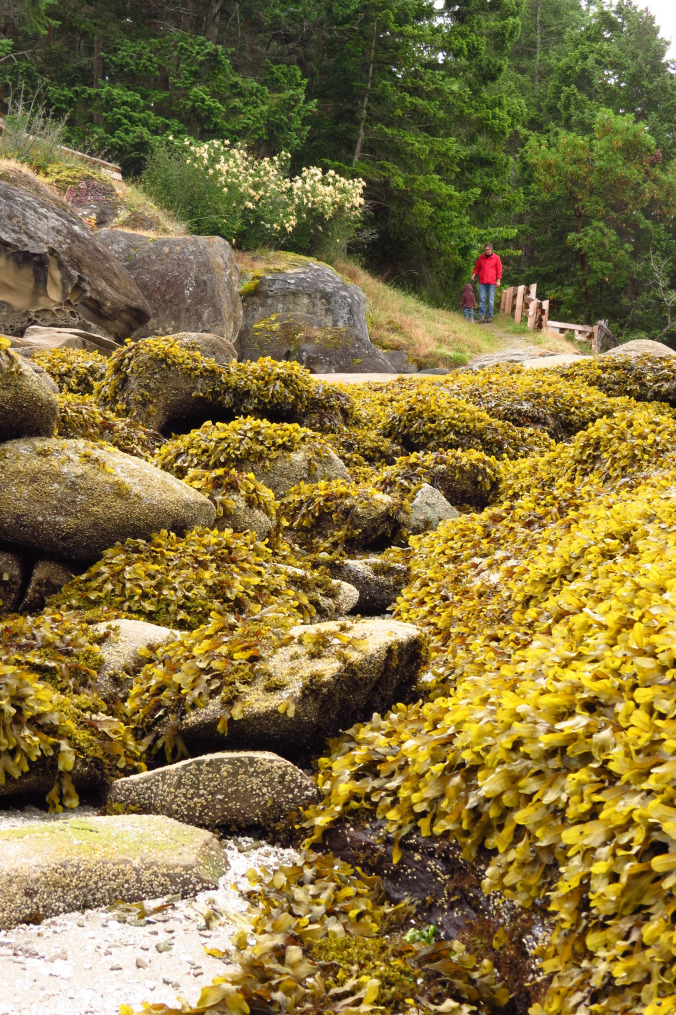Book Update
We’re getting close to the coveted 50% milestone on funding the Escape Everything! book.
Word to the wise: marvelous things will happen when we reach 60%. So hop on board to help us get there. Intriguing? I think so.
I can also tell you that the book will have a foreword from a very popular blogger whom I know many of you are fond of. Also intriguing? Indeedy.
Getting the book funded and published is quite a big deal. If successful, we’ll not be merely printing a book (something we’ve always done without money) but getting it properly distributed to bookshops, pushing the idea of Escapology out to wider audience. We’ll also be getting the kind of editorial and design assistance that only a publisher can offer.
So, if you’ve not already done so, please order your copy today.
For reasons I don’t understand, the site seems to give an automatic £5 discount whenever you add a book to the cart. It could well be an oversight, so act quickly if you want to take advantage! (I’d rather you clicked the “I want to pledge more” link at checkout though, since we need the money and this mistake will surely cost us dearly).
In addition to the basic book package, there are pledge levels with bigger rewards. The £50 and £65 levels are good ways of ordering the complete New Escapologist back catalogue in that they’re cheaper than our shop packages and will get you the book as well. Admittedly, you have to wait until the project is fully-funded to get your magazines but if you order the £50 “Digital Escapologist” version and send me a sneaky email I’ll just send you the PDFs right away.
If you’ve already bought the book and would like to upgrade to a higher level, you can send an email to support@unbound.co.uk and they’ll let you do that.
Here are some of those levels. And they’re clickable!
[No] More Growth
It’s not about overthrowing capitalism. It’s not about trying to change human nature. What we’re doing here is we’re taking a few simple steps towards an economics fit for purpose. And at the heart of that economics, we’re placing a more credible, more robust, and more realistic vision of what it means to be human.
This is from a 2010 TED Talk by economist Tim Jackson who offers a way to keep our system and save our planet. It’s the kind of rational conversation you don’t actually see very often.
The gist (but watch the video anyway) is that we must curb our lust for economic growth if we’re to save the planet and close the inequity gap between rich and poor. Doing so, he shows, need not be damaging to our collective or individual dignity and it need not cost us our convenient and comfortable System. We just need an economic reality check (that’s the title of his talk, actually) on our society’s addiction to growth and GDP.
the only thing that has remotely slowed down the relentless rise of carbon emissions over the last two to three decades is recession. And recession, of course, isn’t exactly a recipe for hope, as we’re busy finding out. So we’re caught in a kind of trap. […] We can’t live with [growth]; we can’t live without it. Trash the system or crash the planet–it’s a tough choice; it isn’t much of a choice. And our best avenue of escape from this actually is a kind of blind faith in our own cleverness and technology and efficiency and doing things more efficiently.
★ Tired of the everyday grind? Pre-order the New Escapologist book today.
Growth
Working hours rise, wages stagnate or fall, tasks become duller, more stressful and harder to fulfill, emails and texts and endless demands clatter inside our heads, shutting down the ability to think, corners are cut, conditions deteriorate, housing becomes almost impossible to afford, there’s ever less money for essential public services. What and whom is this growth for?
It’s for the people who run or own the banks, the hedge funds, the mining companies, the advertising firms, the lobbying companies, the weapons manufacturers, the buy-to-let portfolios, the office blocks, the country estates, the offshore accounts. The rest of us are induced to regard it as necessary and desirable through a system of marketing and framing so intensive and all-pervasive that it amounts to brainwashing.
From a positively glistening essay by George Monbiot.
Thus the Great Global Polishing proceeds, wearing down the knap of the Earth, rubbing out all that is distinctive and peculiar, in human culture as well as nature, reducing us to replaceable automata within a homogenous global workforce, inexorably transforming the riches of the natural world into a featureless monoculture.
Is this not the point at which we shout stop? At which we use the extraordinary learning and expertise we have developed to change the way we organise ourselves, to contest and reverse the trends that have governed our relationship with the living planet for the past two million years, and that are now destroying its remaining features at astonishing speed? Is this not the point at which we challenge the inevitability of endless growth on a finite planet? If not now, when?
★ Tired of the everyday grind? Pre-order the New Escapologist book today.
Answerable to Nobody

In The Talented Mr. Ripley, a clever young man is charged with the task of dragging an errant playboy back to New York from a life of bohemian decadence in Italy. He finds himself in two minds about his task.
Why should Dickie want to come back to subways and taxis and starched collars and a nine-to-five job? Or even a chauffeured car and vacations in Florida and Maine? It wasn’t as much fun as sailing a boat in old clothes and being answerable to nobody for the way he spent his time, and having his own house with a good-natured maid who probably took care of everything for him. And money besides, to take trips if he wanted to. Tom envied him with a heartbreaking surge of envy and self-pity.
★ Tired of the everyday grind? Pre-order the New Escapologist book today.
Wildean Escapology

It is to be regretted that a portion of our community should be practically in slavery, but to propose to solve the problem by enslaving the entire community is childish. Every man must be left quite free to choose his own work. No form of compulsion must be exercised over him. If there is, his work will not be good for him, will not be good in itself, and will not be good for others. And by work I simply mean activity of any kind.
It’s Oscar Wilde’s birthday. Three cheers for the birthday boy!
The Soul of Man Under Socialism is a sacred text of Escapology.
We should be able, Wilde says, to spend our time precisely as we’d like to, slave to no duty or demand from others; and that the best way for society to cater for this is through a kind of non-authoritarian Socialism. In the meantime, of course, there are individual acts of Escapology–freeing ourselves from the grip of the system through clever individualist means–but that we’re brought to this is something of an indictment.
Wilde also uses the word “escape” a bewildering number of times in the essay. It’s quite uncanny. “Scarcely anyone escapes,” he says in his opening paragraph; artists of means are able to escape; Byron and Shelley escaped oppressive England for bohemian Rome.
Socialism would relieve us from that sordid necessity of living for others which, in the present condition of things, presses so hardly upon almost everybody. In fact, scarcely anyone at all escapes.
We should be free to work as cottage industrialists, to put ourselves into our art or science or craft:
One’s regret is that society should be constructed on such a basis that man has been forced into a groove in which he cannot freely develop what is wonderful, and fascinating, and delightful in him – in which, in fact, he misses the true pleasure and joy of living. He is also, under existing conditions, very insecure.
Minimalism comes up in the form of Wilde’s argument against private property. Not that it’s immoral per se but that it’s a pain in the arse.
The possession of private property is very often extremely demoralising, and that is, of course, one of the reasons why Socialism wants to get rid of the institution. In fact, property is really a nuisance.
I especially approve of this part about rebellion. Rebellion is not a thing to be enjoyed for it’s own sake, no matter what the punks might think. What great things might have been accomplished by, say, Tony Benn or Che Guevara or Richard Dawkins if they had not been required to spend so much energy going against the grain?
Most personalities have been obliged to be rebels. Half their strength has been wasted in friction. Byron’s personality, for instance, was terribly wasted in its battle with the stupidity, and hypocrisy, and Philistinism of the English. Such battles do not always intensify strength: they often exaggerate weakness. Byron was never able to give us what he might have given us.
Wilde also, like Andrew McAfee, suggests appropriate technology might be our salvation:
At present machinery competes against man. Under proper conditions machinery will serve man. […] The fact is, that civilisation requires slaves. The Greeks were quite right there. Unless there are slaves to do the ugly, horrible, uninteresting work, culture and contemplation become almost impossible. Human slavery is wrong, insecure, and demoralising. On mechanical slavery, on the slavery of the machine, the future of the world depends. And when scientific men are no longer called upon to go down to a depressing East End and distribute bad cocoa and worse blankets to starving people, they will have delightful leisure in which to devise wonderful and marvellous things for their own joy and the joy of everyone else.
★ Tired of the everyday grind? Pre-order the New Escapologist book today.
Sleep and Braininess
Start work at 10am and sleep after lunch. If you want to get ahead, take a nap.
Friend Tom Hodgkinson has a nice piece about the benefits of sleep at the Guardian website this week.
More sleep equals economic growth: that is the extraordinary equation that we’re nearing. Which is great. If we can somehow convince the authorities, with the help of science, that sleep is good for productivity, then we’re on to a win-win situation.
★ Tired of the everyday grind? Pre-order the New Escapologist book today.
The Handcrafted Life
We returned to Canada after a decade in London, UK with a small child in tow and decided to set-up a sustainable (more on this later) 21st century homestead on 5.65 acres of fir, alder and meadow on Gabriola Island, BC, Canada.
Here’s the blog of friend and New Escapologist contributor Rob West (genuinely not one of my pseudonyms).
Rob and family are setting up home in British Columbia, pretty much doing everything from scratch: building their own house, growing their own crops.
It’s a staggering undertaking. The blog charts the construction of their new home.


★ Tired of the everyday grind? Pre-order the New Escapologist book today.
Ernold Same
Remember this? My favourite bit for some reason is the stain he always sits on.
★ Tired of the everyday grind? Pre-order the New Escapologist book today.









